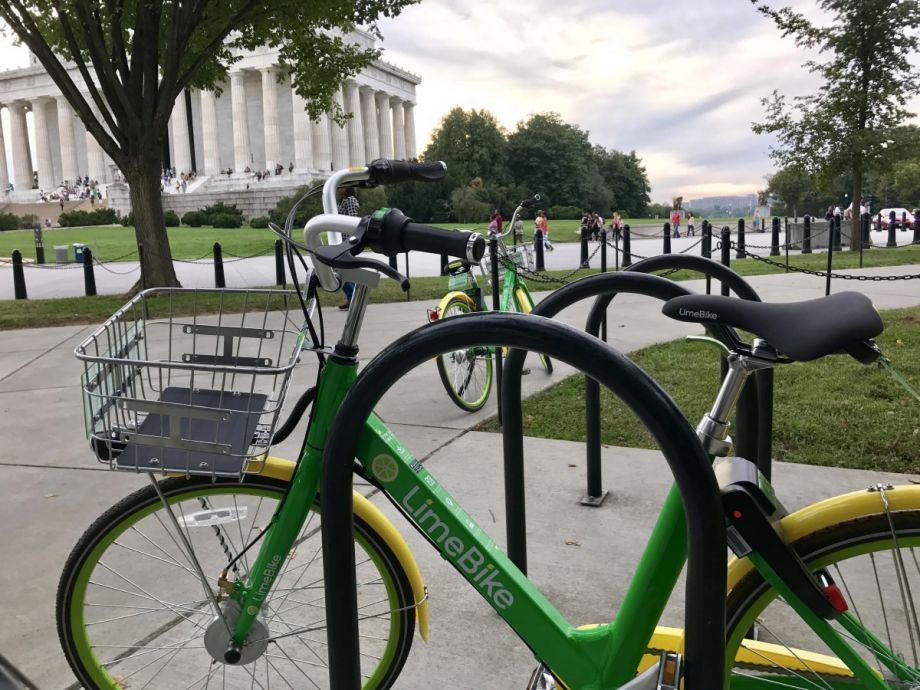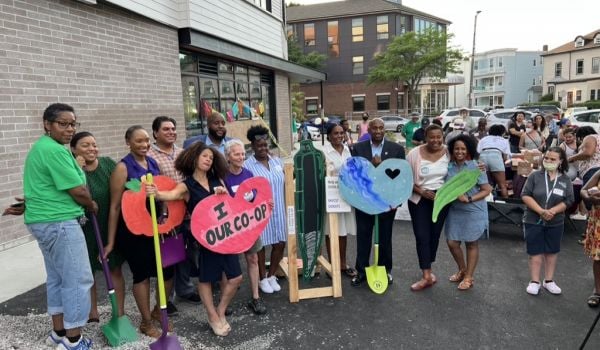In a clear indication that dockless bikeshare is here to stay (at least for now), two cities announced new dockless bikeshare pilot programs and another extended its existing pilot program. The moves were hailed by biking and transportation advocates and caused concern among communities worried about the “urban trash” caused by riders leaving bikes blocking sidewalks and entrances and appearing in trees and lakes.
Washington, D.C.’s dockless pilot had been scheduled to end Monday, April 30, with the city and companies agreeing to a set of rules to move forward. But the industry and many in the biking community said the rules were too stringent. Under the pressure, the District Department of Transportation instead dropped the new rules and announced it would extend the pilot program through August, the Washington Post reported.
The rules would have included new fees from operators—around $200 per bike—and require bikes to have double kickstands or locks that would attach the bikes to objects. (Many dockless bikeshare cycles have only wheel locks to secure them; only Jump, the electric bikeshare company acquired by Uber earlier this month uses U-locks. The fees would have been among the highest in the country. Other cities typically charge an annual licensing fee in the three figures and a per-bike fee around $10 to $15, the Post said.
Meanwhile, the Boston Metropolitan Area Planning Council announced that it’s selected two dockless operators for a pilot in 15 communities in the metro region, to begin this summer. Four of the 15 communities have been trialing dockless bikeshare since fall 2017 and “are now joining the regional effort to make cross-border travel easier and safer,” a press release said. Boston, as well as Cambridge, Somerville and Brookline are not included in the dockless bikeshare program, Curbed Boston reported, as an exclusive agreement with docked bikeshare operator Hubway prohibits it.
The Greater Boston pilot will include 2,000 cycles from LimeBIke and Spin. Kasia Hart, a transportation policy associate with the planning council, told the Boston Globe that the council and participating cities will be “evolving this system based on demand…It will take time to determine what the correct number of bikes is.” The pilot doesn’t require bikes to be locked to objects.
Chicago is also welcoming dockless bikes this week for a six-month test in parts of the city, the Chicago Tribune reports. As of April 25, the city was still reviewing vendor proposals and would not comment on the expected number of vendors. Each will be allowed a maximum of 250 bikes on the street, only 50 of which can be wheel-lock. By July 1 all bikes in an operator’s fleet must be able to be locked to something.
“I think it’s important that we don’t have bicycles lying all over the public way,” Alderman Matthew O’Shea, whose district is included in the pilot, told the Tribune.
Chicago transportation advocates were lukewarm in their support for the new program. Active Transportation Alliance Executive Director Ron Burke said he was concerned that dockless bikeshare may undermine the city’s docked bikeshare program, Divvy, which has operated in the city since 2013 and has 37,000 annual members. “It’s complex, it’s tricky, but it’s certainly worth trying and getting it right, and the pilot project is a good place to start,” he told the Tribune. Randy Neufeld, a Chicago bicycling advocate, praised the “lock onto” requirement and noted that if the pilot protected Divvy from competition, that would be a worthwhile goal. Divvy income pays for biking infrastructure and safe-biking education.
Meanwhile, as Washington, D.C.’s pilot continues another four months, operators are still capped at 400 vehicles, a decision the operators are concerned about. According to the Post, some operators believe there is a demand for as many as 20,000 bicycles.
David Alpert, the executive director of D.C. Sustainable Transportation (and the founder of urbanist blog Greater Greater Washington) praised the pilot while acknowledging that some sort of regulation “make[s] sense.” “it is a valuable program…people would really like it to be successful.”
The Department of Transportation will collect more data on bikeshare usage during the summer, when ridership is typically highest. It’s unclear if the proposed regulations will be revived at the end of August, the Post noted.

Rachel Kaufman is Next City's senior editor, responsible for our daily journalism. She was a longtime Next City freelance writer and editor before coming on staff full-time. She has covered transportation, sustainability, science and tech. Her writing has appeared in Inc., National Geographic News, Scientific American and other outlets.
Follow Rachel .(JavaScript must be enabled to view this email address)
















